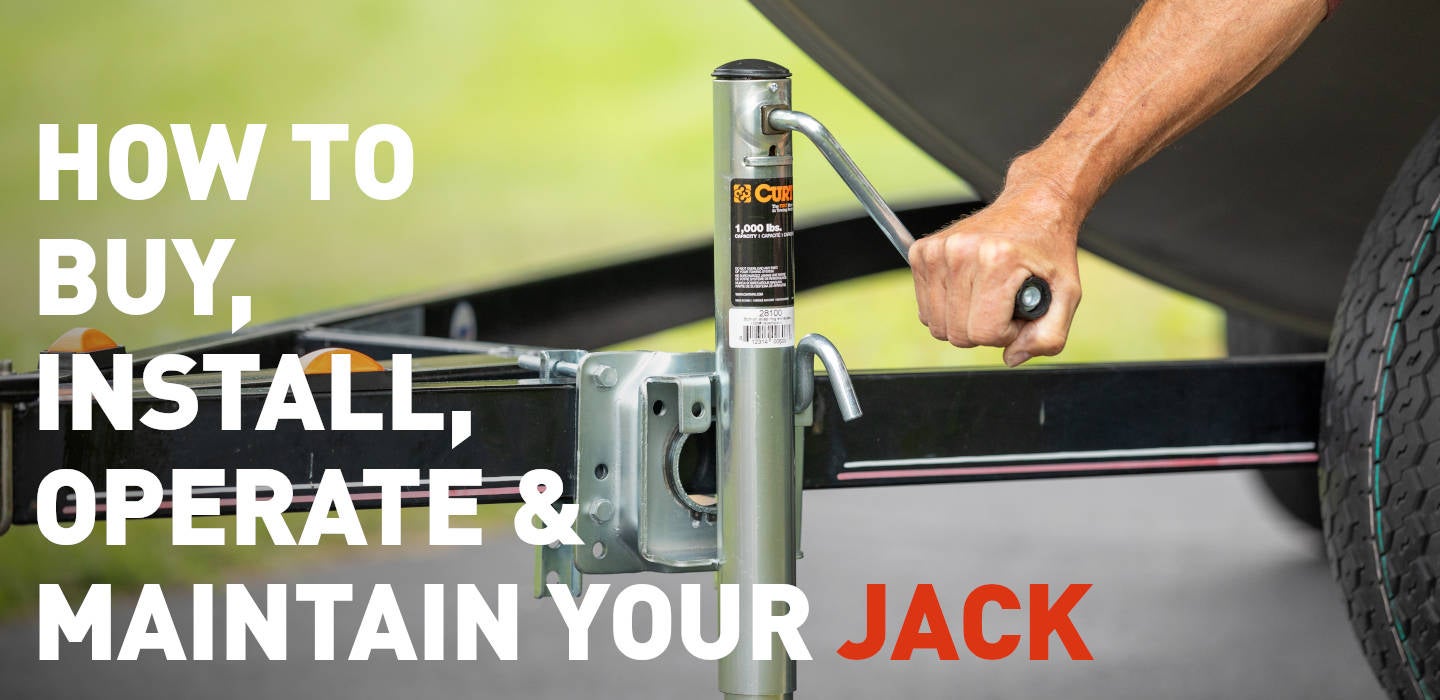If your RV leveling jacks are not working, check the hydraulic fluid level and ensure the valves are fully open. Proper maintenance of the hydraulic system is crucial for the functioning of the leveling jacks.
When it comes to RV leveling jacks not working, it can be frustrating and cause inconvenience during your travels. It’s essential to address this issue promptly to avoid further damage and ensure your safety on the road. This article will cover common reasons why your RV leveling jacks may not be working and provide practical solutions to troubleshoot and resolve the problem.
By understanding the potential causes and taking the necessary steps to rectify the issue, you can ensure that your RV leveling jacks operate efficiently, allowing you to enjoy a smooth and hassle-free journey.

Credit: www.amazon.com
Common Rv Leveling Jacks Issues
When it comes to enjoying the comfort of your RV, having properly functioning leveling jacks is essential. However, these systems can sometimes experience issues that hinder their performance. Here are some common problems that RV owners face with their leveling jacks:
Electrical Problems
1. Power Supply: Insufficient power supply can lead to erratic behavior in leveling jacks, such as failure to extend or retract properly. Ensure that the RV’s electrical system is providing adequate power to the jacks.
2. Wiring Issues: Faulty or damaged wiring can cause intermittent or complete failure of the leveling jacks. Regularly inspect the wiring for any signs of wear or corrosion, and promptly address any issues.
Mechanical Failures
1. Hydraulic Leaks: The hydraulic system of leveling jacks is prone to leaks, which can result in decreased performance or complete failure. Regularly check for any signs of hydraulic fluid leaks and promptly fix any leaks.
2. Worn Components: Over time, the mechanical components of leveling jacks, such as gears and bearings, can wear out, leading to issues with stability and operation. Regular maintenance and timely replacement of worn components are essential to avoid problems.
3. Corrosion: Exposure to external elements can cause corrosion in the leveling jacks, affecting their functionality. Regularly inspect the jacks for any signs of corrosion, and take appropriate measures to prevent and address corrosion.

Credit: rvsnappad.com
Pre-troubleshooting Checks
If you are facing issues with your RV leveling jacks not working, there are a few steps you can take to troubleshoot the problem before calling a professional. These pre-troubleshooting checks can help you identify common issues and potentially save you time and money. In this article, we will discuss some essential checks you can perform before diving into more complex troubleshooting steps.
Power Supply Inspection
The first step in troubleshooting your RV leveling jacks is to inspect the power supply. Ensure that your RV is properly connected to a reliable power source, such as a generator or shore power. Check the power cables and connections for any damages or loose connections. If you are using a generator, make sure it is running smoothly and providing enough power to operate the leveling jacks.
If you are plugged into shore power, verify that the power supply is sufficient to handle the load of your RV and its appliances. Inspect the circuit breakers and fuses related to the leveling jacks. If any breakers have tripped or fuses have blown, reset or replace them accordingly. Sometimes a simple power supply issue can cause the leveling jacks not to work, so this is an important check to perform.
Manual Operation Test
If the power supply is not the root cause of your leveling jacks malfunctioning, the next step is to test the manual operation. This test will help you determine if there are any mechanical problems with the jacks themselves.
To manually operate the leveling jacks, consult your RV’s owner’s manual for specific instructions. In general, you will need to locate the manual operation controls, usually located near the jacks themselves or in a designated control panel. Use the provided tools or switches to manually extend and retract the jacks. Observe if they respond accordingly.
If the manual operation test is successful, it indicates that the jacks themselves are functioning correctly, and the issue may be with the electrical components or control panel. However, if the jacks do not respond to manual operation, there may be a mechanical problem that requires further inspection or professional assistance.
Performing these pre-troubleshooting checks can help you identify and resolve simple issues with RV leveling jacks not working. It is always recommended to consult your RV’s owner’s manual and follow proper safety procedures. By following these steps, you can save time and potentially avoid costly repairs.
Troubleshooting Process
When it comes to RV leveling jacks, it can be frustrating if they suddenly stop working. However, before you panic and call for professional help, it’s worth going through a troubleshooting process to see if you can identify and resolve the issue yourself. In this section, we’ll walk you through the steps to take when your RV leveling jacks are not working, starting with checking electrical connections and inspecting hydraulic fluid levels.
Checking Electrical Connections
One of the first things to check when your RV leveling jacks are not working is the electrical connections. Start by ensuring that the power source is properly connected and supplying the necessary voltage. Check all the fuses and breakers related to the leveling jacks to make sure they are not blown or tripped. Inspect the wiring for any signs of damage or loose connections.
If everything appears to be in order, you can use a multimeter to test the voltage at different points of the electrical system. Look for any significant drops in voltage that could indicate a faulty connection. If you find any issues, tighten the connections or replace any damaged wiring accordingly. It’s also a good idea to clean any corrosion or debris from the electrical terminals to ensure a proper connection.
Inspecting Hydraulic Fluid Levels
Another crucial aspect to consider when troubleshooting RV leveling jacks is the hydraulic fluid levels. The jacks rely on hydraulic power to extend and retract, and if the fluid levels are low or there’s a leak, it can cause the jacks to malfunction. Start by locating the hydraulic fluid reservoir and check the fluid level. Refer to your RV’s manual for the specific procedures.
If the fluid level is low, top it up with the recommended hydraulic fluid. Be cautious not to overfill the reservoir, as this can also cause issues. Inspect all the hydraulic hoses and connections for any visible leaks. A leak can hinder the proper functioning of the leveling jacks, and it might require professional assistance to fix it. If you do find a leak, take note of its location and provide this information to a repair technician for further guidance.
In addition to checking the fluid level and inspecting for leaks, it’s important to ensure that the hydraulic pump is operating correctly. Listen for any unusual sounds or vibrations when you activate the leveling jacks. If you notice anything out of the ordinary, it could indicate a problem with the pump, and you may need to contact a professional for further diagnosis and repair.
By following these steps and troubleshooting your RV leveling jacks, you’ll be able to identify and resolve common issues that may arise. Always refer to your RV’s manual for specific instructions and consult a professional if you’re unsure about any aspect of the troubleshooting process. With a bit of patience and attention to detail, you can get your RV leveling jacks back in working order and continue enjoying your adventures on the road.

Credit: www.scribbr.com
Specific Jacks Troubleshooting
When it comes to RV leveling jacks, it’s not uncommon to encounter issues with their functioning. As an RV owner, understanding how to troubleshoot and fix these problems can save you time, money, and frustration. In this section, we will explore some common issues that you may face with your front and rear jacks and provide practical solutions to resolve them.
Front Jacks Issues
If you are experiencing problems with your front jacks, here are some troubleshooting tips:
- Weak or Slow Operation: If your front jacks are not extending or retracting as quickly as they should, check the hydraulic fluid level. It’s essential to have the correct fluid level for optimal performance.
- Leaking Fluid: If you notice hydraulic fluid leaking from your front jacks, inspect the hoses and connections for any signs of damage or wear. Replace any faulty components to prevent further leakage.
- Unresponsive Controls: If the controls for your front jacks are not working, check the power connection. Ensure that the power source is functioning correctly and that all connections are secure. If the issue persists, consult a professional.
Rear Jacks Issues
If your rear jacks are causing problems, consider the following troubleshooting measures:
- Uneven Extension: If your rear jacks are not extending evenly, check for any obstructions or debris that may be hindering their movement. Clear any obstacles and try extending the jacks again.
- Excessive Noise: If you hear unusual noises, such as grinding or clunking sounds, when operating your rear jacks, it could indicate a mechanical issue. Inspect the jacks for any visible damage or misalignment. Lubricate the moving parts regularly to reduce friction and noise.
- Motor Failure: If your rear jacks’ motor is not working, check the power supply and connections to ensure they are intact. If the motor remains non-functional, it may need to be replaced or repaired by a professional.
Remember that these troubleshooting tips are general guidelines, and it’s always best to refer to your RV’s user manual or seek professional assistance if the problem persists or if you are unsure about any repairs. By addressing these specific jack issues promptly, you can ensure that your RV leveling jacks continue to function reliably, allowing for a smooth and stable camping experience.
Professional Assistance
Experiencing issues with your RV leveling jacks? Get professional assistance to troubleshoot and resolve the problem efficiently. Don’t let malfunctioning jacks spoil your outdoor adventure—seek expert help to get back on the road with confidence.
When To Seek Professional Help
If you find your RV leveling jacks not working despite your best efforts, it may be time to seek professional assistance. While it can be tempting to try and fix the issue yourself, a qualified professional can ensure the problem is diagnosed correctly and resolved effectively. Knowing when to seek professional help is crucial to avoid further damage and ensure the smooth functioning of your RV’s leveling system. Here are a few scenarios where professional assistance is recommended:- If you are unsure about the underlying cause of the leveling jacks malfunction
- When the leveling jacks fail to respond to any troubleshooting attempts
- If you have already tried basic maintenance and troubleshooting steps without success
- When you lack the necessary tools or expertise for advanced repairs
- For warranty-related repairs, it is advisable to consult the manufacturer or an authorized service center
Maintenance Tips
Proper maintenance of your RV leveling jacks can help prevent issues and extend their lifespan. Here are some essential maintenance tips to keep in mind:- Regularly inspect the leveling jacks for any signs of wear, damage, or leaking hydraulic fluid
- Keep the leveling jacks clean and free from debris, dirt, and rust
- Apply lubrication to movable parts, such as pivot points, gears, and joints, as specified by the manufacturer
- Ensure the leveling jacks are properly retracted before moving your RV to avoid unnecessary strain
- Follow the manufacturer’s guidelines for weight capacity and leveling jack usage
- Keep the hydraulic fluid at the recommended level, and check for any possible leaks
- Store the RV on a level surface to minimize stress on the leveling jacks
- If you are unsure about any maintenance procedures, consult the owner’s manual or seek professional advice
Frequently Asked Questions On Rv Leveling Jacks Not Working
Why Are My Rv Leveling Jacks Not Working?
There could be several reasons for RV leveling jacks not working. It could be due to low battery power, hydraulic fluid leaks, or a faulty control panel. Check the battery charge, inspect the jacks for leaks, and ensure the control panel is functioning properly.
If the issue persists, consult a professional RV technician for further assistance.
How Do I Troubleshoot My Rv Leveling Jacks?
To troubleshoot RV leveling jacks, start by checking the battery charge and connections. Inspect the hydraulic fluid levels and look for any leaks. Ensure the control panel is properly programmed and functional. Try resetting the system by disconnecting and reconnecting the power.
If the problem persists, consult the RV’s user manual or contact a certified technician for assistance.
Can I Manually Operate My Rv Leveling Jacks?
In most RVs, there is a manual override option to operate the leveling jacks manually. Refer to your RV’s user manual to locate the manual override mechanism, typically a crank or lever. Follow the instructions provided to manually extend or retract the jacks as needed.
Remember to exercise caution and ensure proper leveling to avoid any damage to your RV.
Conclusion
Troubleshooting issues with RV leveling jacks is crucial to ensure a smooth and enjoyable camping experience. By following the steps outlined in this blog post and taking into account the common causes of malfunction, you can easily identify and fix the problem.
Remember to perform regular maintenance and consult a professional if needed. Happy camping!


